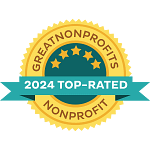What is the California End of Life Option Act?
The California End of Life Option Act1 authorizes medical aid in dying. The law allows a mentally capable, terminally ill adult with six months or less to live to request aid-in-dying medication from their doctor for self-administration, if their suffering becomes unbearable, to bring about a peaceful death. The law, which was signed by Governor Jerry Brown on October 5, 2015, will go into effect on June 9, 2016.
Who is eligible for medical aid in dying?
To be eligible for medical aid in dying under California’s law, an individual must be:
- An adult
- Terminally ill
- Given a prognosis of six months or less to live
- Mentally capable of making their own healthcare decisions
An individual must also be:
- A resident of California
- Acting voluntarily
- Making an informed decision which includes being given information about all other end-of-life options
- Informed that s/he may choose to obtain the aid-in-dying drug, but not take it
- Capable of self-administering and ingesting the aid-in-dying drug
Two California physicians must agree that you are eligible to use the California End of Life Option Act. One physician prescribes the medication, and the other physician gives a consulting opinion. If either physician is unable to determine your mental capacity in making the request, a mental health professional (psychiatrist or psychologist) must evaluate you and ensure that you are capable of making your own healthcare decisions.
In addition to the requirements listed above, steps must be followed in order for a person to qualify for a prescription for aid-in-dying medication. Please see Compassion & Choices’ California End of Life Option Act – Information for State Residents.
Is the practice of medical aid in dying trusted?
Yes. Medical aid in dying is a safe and trusted medical practice because the eligibility requirements ensure that only mentally capable, terminally ill adults with a prognosis of six months or less who want the choice of a peaceful death are able to request and obtain aid-in-dying medication. In California, the law specifically states that no person can qualify for aid-in-dying medication based solely on their disability or age.
In the more than 30 combined years of medical aid in dying in authorized states, there has not been a single instance of documented abuse. In Oregon, end-of-life care has improved overall since the law’s implementation, in large part due to the dialogue the Death With Dignity Act encourages between people and their doctors. Hospice referrals are up, as is the use of palliative care. Oregon now has the lowest rates of in-hospital deaths and the highest rates of at-home deaths in the nation, and violent suicide among hospice patients has virtually disappeared. Almost two decades of rigorously observed and documented experience in Oregon shows us the law has worked as intended, with none of the problems opponents had predicted.
How does the public feel about medical aid in dying?
The American public consistently supports medical aid in dying by large majorities in independent national and state surveys. Polling outlets such as Gallup (68% support in May 2015)2 and Harris (74% support in November 2014)3 both report strong support for medical aid in dying.
How does the medical profession feel about medical aid in dying?
A 2014 Medscape survey of 17,000 doctors representing 28 medical specialties demonstrated that a majority of physicians (54% vs. 31%) support a terminally ill patient’s decision to end their life.4 In California, the End of Life Option Act was endorsed by more than 75 organizations including the American Nurses Association/California, California Psychological Association and California Primary Care Association. A growing number of national organizations representing healthcare professionals have accepted medical aid in dying as an end-of-life option for mentally capable, terminally ill adults including the California Medical Association, the American Public Health Association and the American Association of Hospice & Palliative Medicine.
What can I do to make sure my doctor will support me if I ever want to access medical aid in dying?
Ask your doctor and medical providers now whether they will support your end-of-life choices, including medical aid in dying. This will encourage your medical providers to listen to your priorities and become prepared to provide you with the treatment you may want in the future. If your medical providers are unable or unwilling to support your end-of-life choices, you have the option to change your care to a healthcare team that puts your wishes first.
My doctors want to better understand medical aid in dying; where can they learn more?
Doctors can call Compassion & Choices’ Doc2Doc consultation line at 800-247-7421 for a free, confidential consultation and information on end-of-life care with our medical directors who have extensive medical aid-in-dying experience.
How long does the process take to request and obtain the aid-in-dying medication?
The process to request and obtain aid-in-dying medication can be a lengthy one (and may not be successful) if you do not have a supportive healthcare team. The average length of time is between 15 days to three months and requires at least two doctor visits. Therefore, it is very important for individuals who may want to access the law to talk to their doctors early
Where can I find the necessary forms?
The State Department of Health will be uploading information and forms to its website before the law becomes effective on June 9, 2016.
Are there other resources available to learn more about medical aid in dying?
You can call our California Information Hotline at 1-800-893-4548 or visit http://www.EndOfLifeOption.org for more information and resources.






